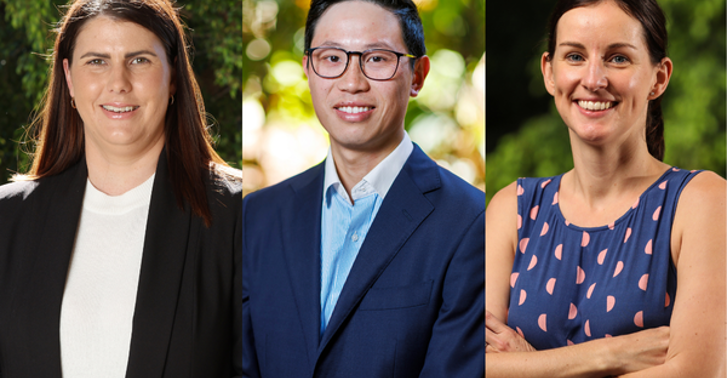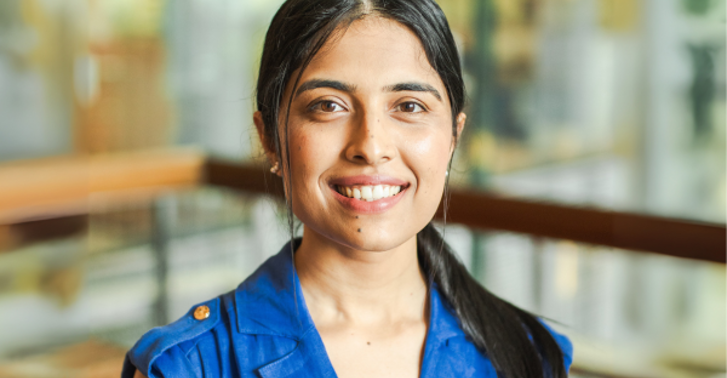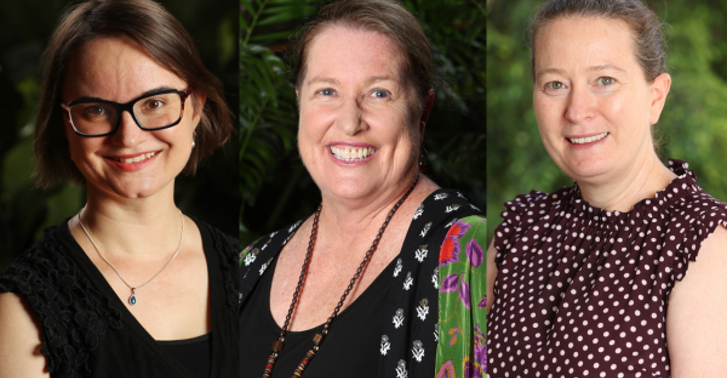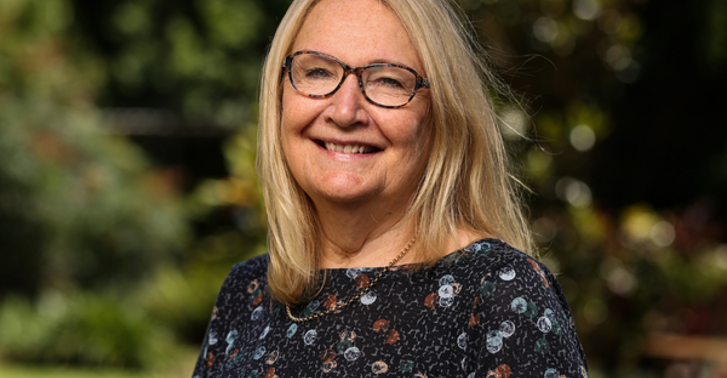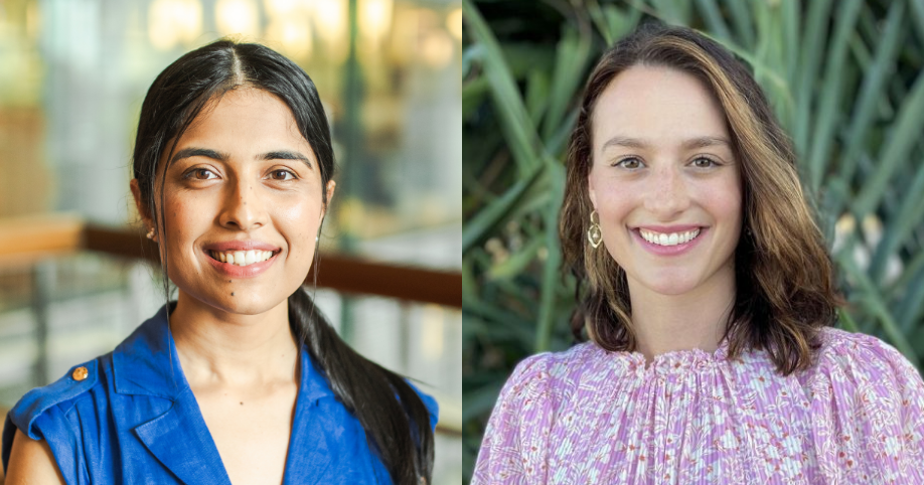
Mater Research continues to champion equity, diversity, and inclusion in the workplace—values that are deeply embedded in its culture.
Since 2017, the Strategic Grant for Outstanding Women has supported talented female researchers in overcoming career-specific challenges.
Designed to help close the gender gap in the STEM fields (Science, Technology, Engineering and Mathematics), the grant is enabled by Mater Foundation and offers flexible funding to support each recipient’s unique career journey.
This year, in recognition of their remarkable achievements and potential, two outstanding researchers— Dr Rabina Giri and Dr Siobhan Loughnan—have each been awarded this prestigious $90,000 grant. Congratulations to both recipients for their dedication to advancing science and medicine.
Mater Research Executive Director Professor Allison Pettit congratulated both recipients.
“Rabina and Siobhan are outstanding Early Career Researchers,” Prof Pettit said.
“Watching their continued growth is a privilege.”
Dr Giri is a Postdoctoral Researcher in the Inflammatory Bowel Disease (IBD) Group, specialising in microbiology, immunology, and gut health. Her work focuses on developing targeted, effective, and safe therapies for patients suffering from IBD and colorectal cancer. She joined Mater Research as an undergraduate student in 2018 before completing her PhD in 2024 under the supervision of Associate Professor Jake Begun.
Dr Giri said that the grant will allow her to establish a new research stream within the IBD laboratory to explore how gut microbiota regulates cancer-associated signaling in colorectal cancer.
“The funding will support preclinical studies using patient-derived samples and a colitis-associated cancer model,” Dr Giri said.
“Colorectal cancer is now the second most commonly diagnosed cancer in Australia, and incidence among 30–39-year-olds has nearly tripled since 2000. These alarming trends highlight an urgent need to refocus research on the environmental and microbial factors contributing to early-onset colorectal cancer.
“This project aims to address that gap by uncovering microbiome-driven mechanisms that may lead to new preventive or therapeutic strategies.”
In addition to advancing her research, Dr Giri will invest in her professional development through the University of New South Wales Emerging Leaders Program and by attending international conferences. These opportunities will help build her leadership capacity and foster new collaborations in the colorectal cancer research space.
Dr Giri said that as she transitions toward research independence, the Emerging Leaders Program will equip her with the skills required to lead multidisciplinary teams, manage large-scale projects, and build a clear leadership identity.
"As an early-career researcher, managing significant responsibilities in supervision, lab operations, grant writing, and commercialisation activities, I’ve faced challenges balancing these roles with producing the research outputs expected at my career stage,” Dr Giri said.
“Receiving this grant is incredibly meaningful. It not only validates the hard work behind the scenes, but also gives me the momentum to carve out my own research path.
“As an early-career researcher, this support feels like a vote of confidence, not just in my ideas, but in my potential. I’m proud to be supported by Mater Research, an institute that truly champions women in science, not just in words, but through real opportunities to lead, grow, and be seen.”
The grant will also enable Dr Giri to take on primary supervision of students and publish as a senior author—key milestones in establishing research independence.
“I’m excited to expand the lab’s capabilities and contribute to Mater’s Mission of advancing translational research with real clinical impact,” Dr Giri said.
Dr Loughnan is a Senior Research Fellow and a Mater Career Track Fellow at the Stillbirth Centre of Research Excellence (Stillbirth CRE). Since joining the Stillbirth CRE in 2019, she has successfully contributed to several key projects, including the 2024 update of the Care Around Stillbirth and Neonatal Death Clinical Practice Guideline (CASaND) and the national rollout of the Living with Loss online program, bridging gaps in ongoing support for bereaved parents after perinatal loss.
Dr Loughnan said that she will use the grant to establish a national research network for perinatal loss care and care in subsequent pregnancies in Australia.
“This will build on work I am already doing to develop and implement a national Perinatal Loss Care Pathway, alongside 5 partners across Australia,” Dr Loughnan said.
“This project will unite state and territory health departments, maternity services, and national parent advocacy and support organisations to optimise care after perinatal loss nation-wide.”
Dr Loughnan said since joining the Stillbirth CRE in 2019, she has faced several challenges that have impacted her engagement with research and progression as an early career researcher.
“My carer responsibilities, parental leave and illness mean that I have experienced nearly 18 months of career disruptions which have affected my ability to conduct, disseminate, and translate research, as well as participate in professional activities and academic service roles,” Dr Loughnan said.
“Despite these challenges, I have demonstrated resilience and dedication by continuing to lead and contribute to key projects.
Perinatal loss devastates thousands of families each year, disproportionately affecting First Nations women, rural and remote communities, young parents, and migrant and refugee communities. The psychological and social consequences are profound and long-lasting. For bereaved mothers, 60–70% experience grief-related depression for one year after their baby’s death, and for half, this endures for at least four years.
Dr Loughnan said that she has experienced this grief firsthand and knows how important providing the right support for women is.
“I aim to improve the quality of care and outcomes for bereaved families, including a focus on early pregnancy loss and care in subsequent pregnancies after loss,” Dr Loughnan said.
“Thanks to this grant, my goal is to become a fully independent, self-funded researcher within two to five years is within reach.”
